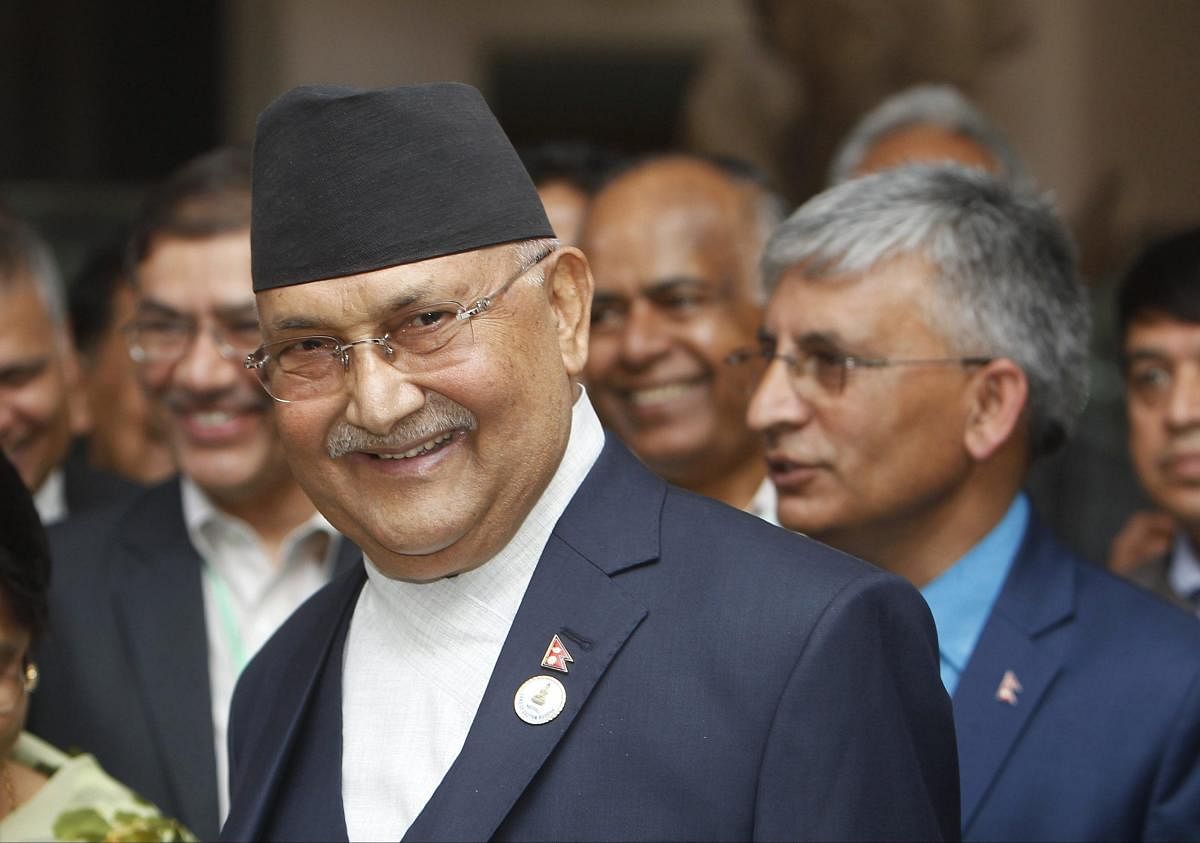
Prime Minister K P Sharma Oli’s government in Kathmandu has hit a roadblock while trying to give a statutory approval to the new map, which it recently released showing the areas claimed by India as part of the territory of Nepal.
New Delhi is “carefully following” developments in Nepal and noted the “larger ongoing debate” in the neighbouring country over Kathmandu’s move to ratchet up the boundary dispute with India. Sources in New Delhi said that the border issues were “sensitive by nature” and required “trust and confidence to be resolved to mutual satisfaction”.
The new map of Nepal published by the Ministry of Land Management of the Nepalese Government on May 20 included Lipulekh Pass, Kalapani and Limpiyadhura – the areas New Delhi claims to be part of the territory of India. Oli’s cabinet had on May 19 decided to publish the new political and administrative map of Nepal, in order to re-assert its claim on the disputed areas. The move was in response to construction of a strategic road by India from Dharchula in its Uttarakhand State to Lipulekh Pass near its disputed boundary with China.
Though a Bill to amend the Constitution of Nepal to endorse the new map was scheduled to be introduced in the country’s Parliament on Wednesday, the Nepal Communist Party (NCP) government dropped it from the list of business. The government backed out after the main opposition party – Nepali Congress – conveyed to the Prime Minister and his Law Minister Shiva Maya Tungbahamphe that it would need more time to study the proposed legislation before taking a stand on it.
The Bill would not have been passed without the support of the Nepali Congress. Any proposed legislation to amend the Constitution of Nepal would require the support of the two-thirds of the members of the country’s parliament.
Oli later had a meeting with the leaders of all political parties at his residence to evolve a consensus to get parliamentary approval to the Bill, which would amend the Schedule 3 of the Constitution of Nepal and would thus endorse the new map asserting Nepal’s sovereignty over Lipulekh Pass, Kalapani and Limpiyadhura and negating the claims of India.
Not only the Nepali Congress, but Samajbadi Janata Party Nepal and the Rashtriya Janata Party Nepal also remained non-committal on supporting the Bill.
“We note there is a larger ongoing debate on this matter (publication of new maps of Nepal showing in its territory areas claimed by India) in Nepal,” a source in New Delhi said, adding: “It (the debate) underlines the seriousness of this issue. It also demonstrates the value being attached to relations between Nepal and India.”
New Delhi suspects that Beijing nudged Nepal to raise its pitch on its territorial dispute with India in response to the new strategic road it built to its disputed boundary to China.
